|
NICOLE NOEL HENARES THE POET: A PERSONAL NARRATIVE I was born in the Monterey peninsula, California, in August, 1974. I proudly share the same birth date as the great labor activist and guerrillera cultural, Luisa Moreno, who organized the women of the Congress of Industrial Organizations, my grandmother’s labor union. My grandparents and their families were members of the immigrant communities who worked on Cannery Row between the 1920’s and 1930’s in the Monterey Bay Area, California. After the collapse of the sardine canning eras in the 1950’s, my grandfather taught himself carpentry. Although it took him three times to pass the test, he became a general contractor. He was very proud of achieving his goal, as he did so without having any formal education. All my cousins and I celebrated our birthdays at the Carousel in the old Edgewater Packing Company on Cannery Row. My fascination with Cannery Row and my family history began then. I started school when I was five years old. I went to Marina Del Mar elementary school. Marina del Mar was a bedroom community of Fort Ord, the largest military base on the west Coast at that time. My mother was a teacher at the school I attended, and piloted one of the first multicultural education curriculums in the country under the tutelage of Dr. Charlie Knight, the first black superintendent of Monterey Peninsula Unified School District. I read a poem when I was five years old. It was about strawberries and fairies. I felt inspired by the fairy book of poems I read then. But I didn’t write my first poem until I was seven. Every time I wrote poems I felt exalted. At the time, I wrote about many other subjects. But I loved writing about fairies. I was really into fairies. I attended a predominantly white high school, in the city of Carmel, located near the city of Monterey. My high school English teacher was Ms. Gilbert--who is now Señora Quintanilla. It was in her classes, during my sophomore year, that we started discussing themes of race and gender. She had us reading everything from Chaim Potok to Lorraine Hansberry and Ray Bradbury. My favorite subjects were English, History and, French. I’m ashamed to admit that I took French and not Spanish to spite my father, because he used to tease me so much, telling me that I spoke Spanish like a gringa. I was very shy around boys and didn’t feel safe around them until I was in high school. But I did have a lot of friends who helped me get through my freshman year. When I was in the ninth grade I was lucky to be mentored by a Latina student who was a senior. She advised me not to compare myself to the white girls. To be myself. She is now Dr. Lauren Padilla-Valverte, the head of the California Community Foundation. The most memorable event in my life before age 18 was playing the Vivaldi violin concerto at the Spring Concert in 1989, my sophomore year, and getting straight A’s except for a B in math. I hated Math. I was 14. Along with a B in Math, I got a D- in Health because pretended to sleep during Sex ED. I was very uncomfortable in that class - I'm a survivor of early childhood sexual abuse. In high school my friends and I were being groomed and molested by an older man we knew at the skating rink. Many of my girlfriends at that time were also victims of what we would call now intimate partner violence. It all bothered me. I didn't know how to talk about anything so I pretended to sleep. The teacher threw erasers at me, but ended up telling my mom I was a "good kid" he just didn't understand what was wrong. Even in my poems from that time, I chose to focus on the resilience within love and connection for the world around me, rather than the pain. However, to fully understand our resilience the trauma it comes from needs to be acknowledged. THE POETRY They say the fourth plane that morning was heading here: 5pm Lonely brass frog statues and armed barricades surround the Trans-America Pyramid, glowing up Columbus Avenue to lime and cherry chipped neon where strip club barkers idle: Tonight, only the regular horny wander in, a hunchbacked Cornell educated former engineer, now poet, with rainbow suspenders, a skin condition, and Mork from Ork hair, needing some semblance of normalcy in a stripper named Scout. Faithful restaurants hesitantly remain open but empty; rows of tables, garlic, pannini, and chianti wait for customers who never come. 7pm The streets are still, like Easter morning, except, instead of church the people hide in the temple of FOX, CNN, and ABC news, praying the dead find resurrection while polychromatic screens synthesize background music, instant replays and red blocked letters AMERICA UNDER ATTACK. In the bar with the photos of naked, now dead, beat poets holding peace signs & flowers, a gaggle of workers from the financial district dissolve around the television that hovers morning into night. One stockbroker, his hair a perfect wave, who says his friends worked in the Towers, loudly slurs through curled lips, “I hope we bomb them, bomb them all, even the young, before they’re old enough to kill..” The bartender shaky with white knuckles, wants to reply but the day has been slow and she needs the tip. 9:30 pm In another bar, one of the only in North Beach without a television, an overly hormonal tranny torch singer, an English teacher, and a piano player named Sam-I-Am share a basket of Danish cheese and crackers, while arguing over the spelling of Afghanistan and the logic that Grendel killed the Danes just because he was “evil”. They wait for James, who’s full of Wizard of Oz masonic conspiracy theories, complaints about backwards baseball caps and the price of hot-dogs, to hear what he’s gonna say. 11pm Wearing wrinkled pinstripes, two young blues musicians play guitar in an alley with Lightnin’ Hopkins’ vengeance- They never say a word about the tempo, terrorists, or vapid late summer night. If John Lee Hooker’s holy Crawlin’ Kingsnake, or a big legged woman slithered next to them they’d only butter from 12 to 7 bar blues. One of them has suffered heroin, baby mama drama, and recently five days in the drunk tank. The other, on vacation from Finland, has lost his wallet, passport, and two guitars in three months. Every blues is their blues; through the night in doorways with purple and green mardi gras beads, lousy tarps and bottles of Hennessey to keep them warm. 2004 Thou Mayest THIS IS THE BREAD OF THE CHOSEN THIS IS THE FOOD OF THE ACCURSED we are a culture of beernuts/ fox sports/ major league/ too much/ shopping/ when the going gets rough/ towers are bombed/ the tough are encouraged/ to consume/ Keep America Open For Business/ one night stands and three marriages moralistic lies /a smoke and mirrors of values and greed/ spooning chainsaws jetskies NASCAR gasoline/ racing / buy one pie get the second for free we are a nation of flatulence go team go faster bigger MORE where the package is more interesting than the toy it’s a cataclysm of the heart a wanton sickness cheap words and extravagant catcalls placing me head first into the bellies of vases/legs flying out/ heart shaped orchid exposed/ only for/ a copulating squawk as the coin twists in the air the shock of the bourgeoisie/ the self proclaimed café hip/ just another commodity for sale/ thinking poetry is bread of the enlightened/ the chosen so smug in hip righteousness/words pockmarked in cheap jewels & artificial fruity blossoms this is the food of the accursed/ the morsels of the damned/ the kernels of those/ who are nothing/ but a statistic to throw around in coffee shops/ a girl who has seen more death at sixteen/ than anyone should/ she told me she couldn’t even recognize his face because it was so covered in blood when he was shot after school on the 29 MUNI and she lives here/ in this city/ in our backyard the slaughter continues /another kid in a coffin we’re not allowed to see/ another imprisoned /headlines just hyper-reality television/ while others like them fight and torture in foreign lands and in our glittering high-rises the twins dance tangerine waltzes /acerbic hipsters syncopate f# on the half note/sip pinot grigio spritzers/ sway with venetian glass eggs up their stoned asses/ point that’s so bourgeois / in between troubled time signatures/ and watery coughs from next-door yet it is the same melancholic tune at 2 am/ babies in cradles of filth/ momma just a baby raised by the television/ so come and see come and see DO YOU SEE I am a deformation for the cursed I snore variations composed on laughter with my cape on and kitchen utensil corsage dirging sonorous nonsense / as a meal my mouth is filled with muddied jellied flowers juggling soured waters pustulled clocks gnawing on the husks of time between my black sounds /the death among the bougainvillea/ live giant balloons/ and hummingbird springs pale stalks of corn /blackberries/ without brambles/ snapped open fuchsia blossoms /releasing nectar for the bleeding while the arrogant wear their spoils I swallow poetry as a prayer 2004 The Dance Of The Urban Honeybee for Ric Masten I needed to mail a letter so I go to my corner Walgreen’s and purchase 4 stamps for $1.99... Later, when the 48 cent difference occurs to me, I wonder if I paid extra for the red cursive emblemed cardboard and plastic wrapping, or convenience? Yesterday I saw a man yell at hotel strikers- workers of less than $10/hour, locked out for demanding health benefits. The man said the strikers made too much noise" "Shut the fuck up!" "Shut the fuck up!" They call me teacher, poet, guide; the honeybee sent out to find a new destination where the hive can find safety. Yet, I'm finding no answers; my students think I'm crazy, too tough of a grader, there's a hole in the ceiling of my classroom, and the heater doesn't work. On the streets, panhandlers stand on their heads next to marquis that say, "All you could ever want to eat". While, Bitsey, the heroin addict midget prostitute crutches across Market Street her freshly amputated left stump swinging in rhythm with the swoosh of traffic. And what's most sad is that it is all so familiar. So I dance my hallucinatory jig that's supposed to tell, "this is where we go from here" to a vacant hive of no answers just a solitary moan of panicked despair. 2004 The Downcast Dreamer Tonight in this limpid ball it's just me and the alleyway mourning doves saying to hell with it all. I surround myself in miniature ornamental beauty because it’s easier to live in the watery glitter of a snow-globe than search for the ineffable in the perfume of the city’s rust and dream white laced with sorrow and the ash of rage. I'm turning mermaid and a bit sea-witch, my heart with the sexless ocean, shiny hard and gaudy, while the doves get drunk like pigeons and hoot tintinnabulations of angels and soundless blessings to empty arms. 2005 Comfort Of The Dead I dreamt of the dead last night, for the second time this week. It was a most rare vision, perhaps past the wit of man to say what dream it was. We were at a play that was being performed in a big auditorium with red, white and blue seats. He had arrived early. He wasn’t high, he didn’t even have a beer with him. He had arrived early, and was waiting for me. He even saved me a seat. The show was sold out. It was a performance of Shakespeare’s Merchant of Venice - (Once upon a time, he ground scored an entire pocket book collection of Shakespeare for me because he knew that I loved Shakespeare.) I was running late, in self pity and despair. Then the realization set in- Yes, our country had elected a president, but he was still alive. He never had died. He was alive and he was waiting for me in an auditorium where we were going to watch a performance of A Merchant of Venice. Some of my students were in the lobby handing out programs. I panicked to find my seat. He wasn’t angry, he held my hand and whispered in my ear that of course he would hold a seat for me, he would always hold a seat for me. He said all that he said when he was alive- That his white last name did not matter, he would always be proud of his brown skin. It did not matter what the historians could or could not dig up, his family had been here since before there were borders, before this was even a state, and was just a place with a made up name. “First we were generals and governors, then we were bad hombres: All that glitters isn’t gold, the quality of our mercy is very fucking strained, and why shouldn’t it be?” The only thing that had changed, was that he no longer said anything about his punk rock nihilism, or wanting to watch the world burn. The only thing he said he wanted to do was watch that play. And as the curtain rose, he whispered, “The poem’s the thing to love for eternity.” 2016 Then And Now “If the problem with PTSD is disassociation the goal of treatment would be association- integrating the cut off elements of the trauma into the ongoing narrative of life, so that the brain can recognize that ‘that was then, and this is now.’” BESSEL VAN DER KOLK Now that I have remembered I can never forget the tick of your heart against my cheek in cold and time travel and fog. your caution knew me and hung in my mouth. You were in trouble, needed to leave, but wanted to say, I didn’t need to marry a poet to be a poet confessions stitched my griefs into silence. I knew you too. You were water and mirror my body remembers in rhythms and strange dreams haunt me. Dreams of the dead and regret when I am sitting in a vat of truth addicted to the taste of illusion and shadow, my greedy skin like dragon scales all sense of myself made no sense. So I scratched and scratched until my fingernails dug beyond flesh, beyond longing, until there was nothing left but blood and bone, and the stubbed beginnings of great green feathers. Happiness is more than earthly delights. (There is only so much sadness allowed.) The poems synthesize, enter a temple of prayer. My words tell me things: Conjoin clever rhymes find coyness within symbols that never dissolve like eighth notes carved into mountains. Chimeras are imperishable and can mother beauty. Forget the intoxication of anger and fear and rot Now is winter in my kitchen. Now is earth and my ear pressed to chest after washed dishes, thank you falls from lips. Now is spring and cusp, bending down onto knees and teasing my cat with a bright pink feather attached to a stick. Now is entwined fingers speeding along the blur of blacks and golds on a nighttime bridge of lights amid pandemic and awakening. EL POEMA es la erección del ahorcado. Demasiado tarde y para nadie. Pero ahí. -David Eloy Rodriguez I Will Wear Yellow Te quiero, entiendes? I will wear yellow. Estas palabras son las palabras de mi sangre, y mi alma, entiendes? No entiendo como tú eres como eres. No entiendo nada, ni el por qué devoras mi corazón, mi cuerpo, mi cabeza, y mis ojos. No entiendo nada, sólo que te quiero. No entiendo nada más. Te quiero. I will wear yellow because I am always trying to find light. Every night the sunset echoes from behind the trees. I remain a heart in the green of mourning. But I will wear yellow. Tonight I am with the waning moon who hovers over the world with her ever changing face. I have listened closely to the secrets the past has told. Don’t worry so much about the future- only the differences between intention and expectation. The oranges are beginning to appear again, and in May the jacaranda will bloom electric and purple. There is always the possibility of starvation and catastrophe and ego and war, but, even then, there is the humble magic of licorice and I know how to find it. Sometimes I hear pointing, accusatory silences, and the sunset continues to cry louder and louder with the click of time. I will wear brass hoops around my ears and around my wrists. I will fall into water. I will wear yellow. All lovebirds are mourning doves. They know my sorrow, like you know my sorrow, and have poured salt and pepper into these wounds, reminding me to look for light as my words turn into the echoes of ragged claws scuttling across the ocean floor, and I dress my heart in yellow. 2020 IN CONVERSATION: Lucha Corpi (LC) and Nicole Noel Henares (NNH) LC: While I’m reading your wonderful poems, Nicole, I’m searching for the reason I haven’t been back to San Francisco just to sightsee on a May or October Sunday afternoon in such a long time. Living in Oakland and crossing the Bay Bridge wasn’t a big deal those Sundays, long ago. The bumper to bumper traffic on the Bay Bridge has become a deterrent now. And I am much older, too. Back then, I always loved driving my young son Arturo and me places, especially on Sundays. Driving by North Beach on our way to Fisherman’s Wharf on my VW Beetle—the Volchi. Taking a deep breath and pushing with my soul and stomach to inch up to the top of Nob Hill hills, fearing that the engine would stall and ... It never happened. After, we’d make our way back to The Mission to savor a fabulous and, at the time, inexpensive meal at a Central American, South American or Mexican Restaurant. Later, after Arturo left home, every so often I would meet Francisco X. Alarcón, Juan Felipe Herrera, Víctor Martínez, Elba Sánchez, Odilia Galván Rodríguez, Rogelio Reyes, Juan Pablo Gutiérrez and other writers of Centro Chicano de Escritores there and have a good time catching up, reading our new poems to one another, and laughing a lot. Enough reminiscing. Let’s talk about you. ****** LC: Nicole, did you live in San Francisco’s North Beach at the time you wrote these poems? When? Why? NNH: From 2001-2013 I lived in Lower Nob Hill about a fifteen minute walk from near North Beach. I gravitated to that neighborhood because of its history with the Beats. LC: How were those years different from your life in Monterey and your painful experiences in Carmel as you were growing up? NNH: In 2001, after 9-11, everything was surreal in the ways it wasn’t surreal. In August 2001 one of my closest friends had OD’d on heroin and had to be identified by his dental records. Two months after 9-11, my godbrother was killed in a drug related murder. There was something familiar about all the chaos. It was easier to make sense out of the political chaos than my personal chaos, but I realize how much both were interconnected. In 2001 I started keeping a notebook again because I had moved to San Francisco to teach and to write. But I had always been writing intermittently throughout my life and expressed political views. I started keeping a diary in 1981 when I was five years old. My first diary entry was, “The hostages were released today, poor Jimmy Carter.” LC: Did writing poetry offer you a way to deal with the unmitigated pain, “the green of mourning”? NNH: The “green of mourning” was about the series of violent deaths I experienced in 2001, including all the deaths in 9-11 . The “green of mourning” circles also the edge of the wound of lost childhood. Compassion means to suffer with and to celebrate. Even as a child, writing was a way to find self compassion, and compassion for the world around me amid the effects of childhood sexual abuse. Though it is never directly stated, it is always there as a subtext. I love my family. Both of my parents were community activists, trying to do the best they could. The adult son of one of my grandmother’s cousins had been molesting me for years—it began when I was three years old, and went on until I was six. He was very disturbed. After my grandmother died and my grandfather remarried, this cousin defaced my grandmother’s grave and sent crazy letters to the house in cut and paste letters. I never talked about any of these things because I felt doing so would somehow betray my family. Only recently in facing these memories did I begin to remember how much my parents suspected but never knew what had happened much less how long it had been happening. When my father found out something was going on he said something to the cousin in English explicitly so I could understand. Part of the terror in facing this trauma is that it happened in a different language. I am still struggling how to allow my resilience to define me more than my trauma. Part of that I think has been speaking Spanish again, and falling in love with the Spanish language, as well as symbols of my childhood that were part of my resilience—like fairies, strawberries, and unicorns. LC: There’s a line in your poem “Now And Then”: “I didn’t need to marry a poet to be a poet.” When I read it, I wasn’t sure whether the lover or the poet was saying it. I suppose it could be an interchangeable line, when the end of a relationship is clear to both. Could you elaborate? NNH: I got engaged to my first husband within two weeks of knowing him. He was/is a great poet. But at that time I didn’t consider myself a poet. I put him on a pedestal as “the poet.” The person who said this to me knew me well enough to call me on my bullshit. LC: Nowadays, what makes you happy? Angry? What springs feed your creative streams?
NNH: I have cultivated a relationship with the daisies and roses in my garden. Their shameless blooming and re-blooming never ceases to amaze me. I feel the same way about people. So many things make me happy—random messages from friends, projects, cats, ghost stories, the wonders of whimsy as a way to fight oppression. Anything that has hope most feeds my creative streams. LC: It’s been a pleasure talking with you, Nicole. Mil gracias y tierno abrazo. © Nicole Noel Henares
0 Comments
Your comment will be posted after it is approved.
Leave a Reply. |
Archives
July 2024
Categories
All
|
Donate and Make Literature Happen
is published by the Somos En Escrito Literary Foundation,
a 501 (c) (3) non-profit, tax-exempt corporation. EIN 81-3162209


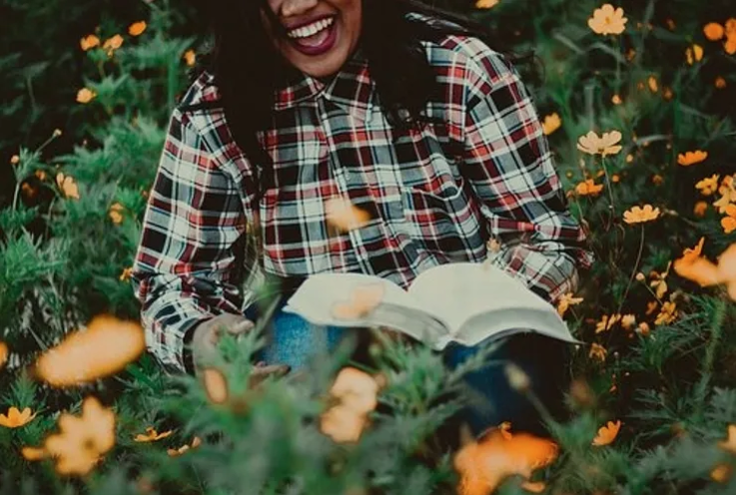
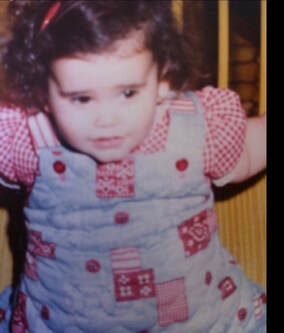
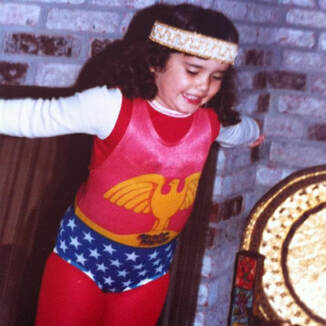
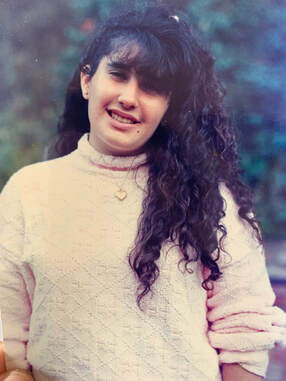
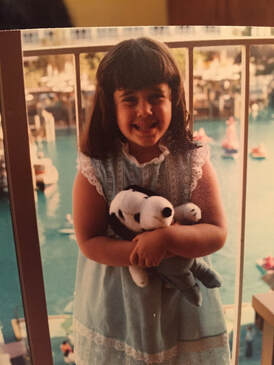
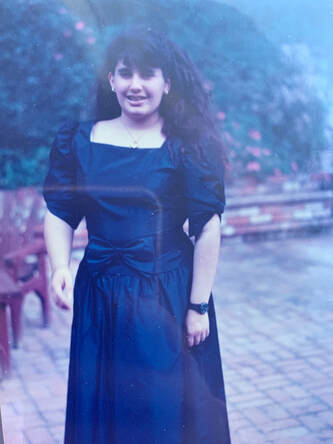
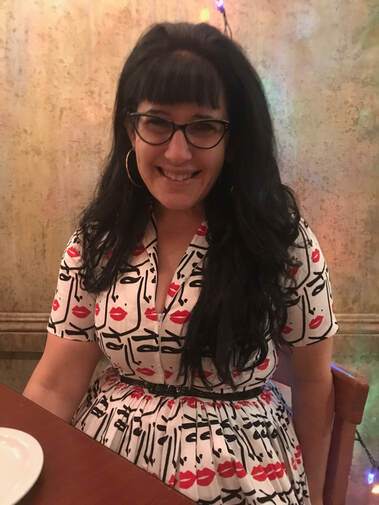
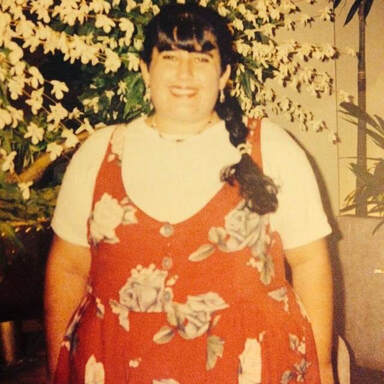
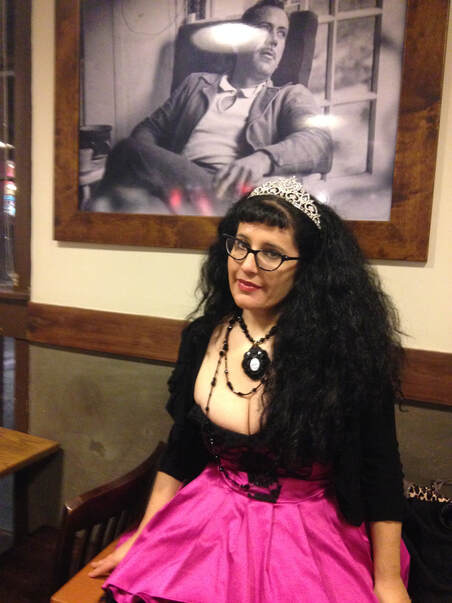
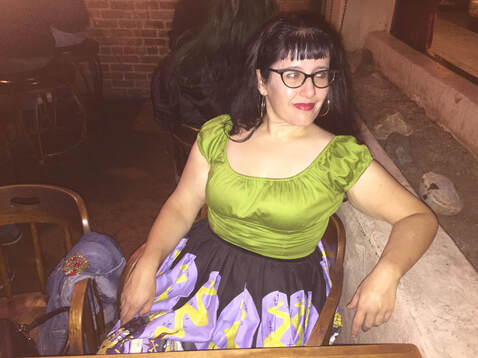
 RSS Feed
RSS Feed